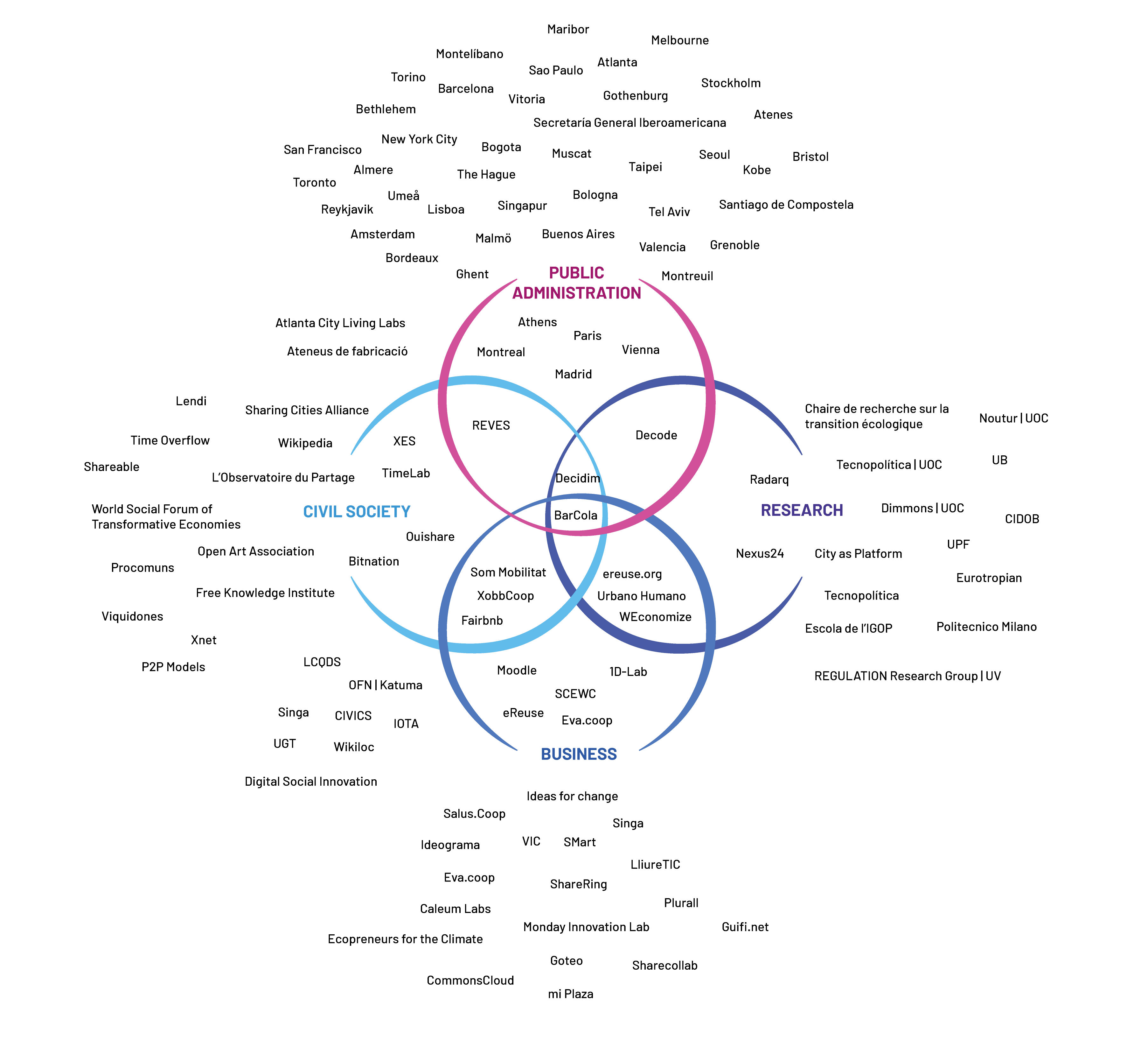The third edition of the Sharing Cities Summit takes place in Barcelona 12-15 of November 2018. What does it consists of? How many cities are joining? Which are their aims and lines of work? Does the ecosystem consider other kinds of actors, apart from cities?
About the Summit
The third edition of the Sharing Cities Summit, which takes place in Barcelona 12-15 of November 2018, follows the previous edition of the Sharing City Summit held in 2017 in NYC, and in 2016 in Amsterdam. The event gathers Mayors and Deputy Mayors from leading cities from around the world, and actors of the sharing ecosystem, to discuss how the continuous growth of sharing economies impacts the life and economic development of the cities. The participants will consider what innovative measures can be taken to meet the challenges and opportunities we face, such as how to differentiate between digital platforms, based on the model of collaboration of its users that is applied. This year’s Summit focuses on defining a Declaration of principles and commitments for a Sharing City, and will stimulate concrete collaboration between cities.
After the Mayors encounter, on 12 November there is a public event in the evening. On 13, 14 and 15 November, a part of this year’s Smart City Expo World Congress (SCEWC18) is dedicated to “Inclusive and Shared Cities“. Among those keynote speakers confirmed are Yochai Benkler, Juliet Schor, Rufus Pollock and Muhammad Yunus, among others experts, and Gerardo Pisarello (Deputy Mayor, Barcelona City Council), Alicia Glen (Deputy mayor, NYC), Udo Kock (Deputy Mayor, Amsterdam), Antoinette Guhl (Paris Deputy Mayor), Cristina Tajani (Milan Deputy Mayor).
The SCEWC Expo has its own Sharing Stand, where visitors can interact with the sharing ecosystem of Barcelona and the 50 cities attending the Summit. More than 70 companies, research centers and other actors will hold presentations, debates and round tables to showcase their projects that are part of this new economic model. Being part of the SCEWC -with an attendance of over 700 cities, 18.000 visitors and 675 exhibitors, along with more than 400 internationally renowned experts and thought leaders- will be a unique opportunity to reach out to other cities, spread a common message, and share the tangible outcomes of the Summit.
Participating Cities
We are happy to announce that almost 50 cities are participating: Amsterdam, Athens, Atlanta, Almere, Bethlehem, Bilbao, Bologna, Buenos Aires, Bordeaux, Bristol, Eindhoven, el Prat de Llobregat, Fez, Ghent, Gothenburg, Grenoble, The Hague, Kobe, La Coruña, Lisboa, Madrid, Malmö, Maribor, Melbourne, Milan, Montreal, Montreuil, New York City, Paris, Prague, Seoul, Tel Aviv, Toronto, Umeå, Valencia, Vienna, San Francisco, Stockholm, Muscat, Sao Paulo, Santiago de Compostela, Singapur, Montelíbano, Taipei, Reykjavik, Rijswijk and Vitoria – Gasteiz have confirmed their participation.
Common Declaration
The Sharing Cities Summit 2018 programme includes several lines of work, from which to jointly develop a common declaration and concrete outcomes. In concrete:
- Co-create a set of common principles and agree on commitments for a shared city, with the aim of reaching a joint declaration, departing from last year NYC Summit principles.
- Collaboration between cities in terms of regulation and negotiation with large platforms that generate disruptive impacts in the city.
- To define criteria to distinguish between platforms, and promotion and occupation policies with the objective of creating an international promotion campaign to connect each city’s work, and promote platforms aligned with the general interest of cities.
In addition, inclusive and gender perspective will be present transversally in the Summit.The Declaration will result from the city government encounter on the 12th and will be launched at the Smart City World Expo Congress.
Sharing Ecosystem
In this Summit’s edition the ecosystem of participating actors is formed by several actors from a variety of fields of action. They are members of the quadruple helix of platform economy, that is to say: they are organizations, researchers, members of the civil society and public administration.

